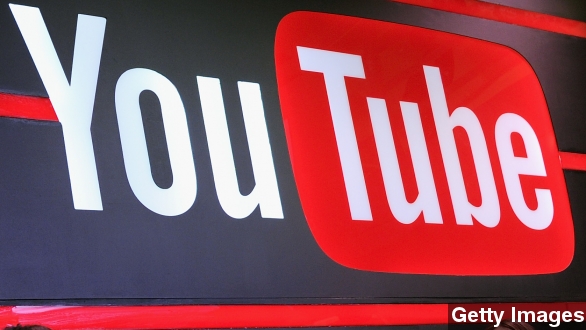Looks like Netflix isn't the only company getting a little annoyed with streaming issues allegedly caused by Internet service providers.
According to Quartz, Google-owned YouTube has begun "shaming" ISPs for slow load-times, pixilated video, and long periods of buffering.
Quartz reports when viewers run into streaming problems, Google will display a box that asks if you're experiencing interruptions. It then prompts users to find out why.
When you click to find out why, Google displays what it calls a "Google Video Quality Report," which rates ISPs on their streaming quality. ISPs are either HD Verified, Standard Definition, or Lower Definition. HD Verified can handle high definition videos with smooth playback, Standard Definition streams 360p videos without interruptions, and Lower Definition works best with videos under 360p.
For its part, Google does say "many factors" influence streaming quality, but it's also very clear about just how much of that quality is affected by one's Internet Service Provider.
In this animation Google writes, "we can't do it alone," showing how data can get stopped up if ISPs aren't capable of handling all the data pouring in.
It all appears to be a move aimed at getting viewers to focus blame on something other than YouTube and Google for streaming problems. That was the same goal Netflix had when it started "shaming" ISPs last month.
But Google might want to look at the history and tread lightly. After Netflix launched its blame game, Verizon — an Internet service provider — threatened legal action, sending the streaming video company a cease and desist letter.
And several outlets are touching on the net neutrality aspect of the situation. They say Netflix and Google are choosing to point out the problem instead of pay for faster service, because it encourages a free and open Internet.
Business Insider writes, "streaming content companies like YouTube and Netflix want to make sure everyone has equal, fast access to their service, and the recent public shaming is their way of letting the public know internet providers are the ones in control."
And Mashable notes, "with Netflix and Verizon, the drama also includes ... issues related to paid peering deals. Netflix has agreed to pay ISPs, such as Comcast and Verizon, to ensure better throughput between the two network systems."
We don't know whether these companies are trying to deflect customer complaints or are truly championing net neutrality. What we do know is streaming companies don't really get along with ISPs.


